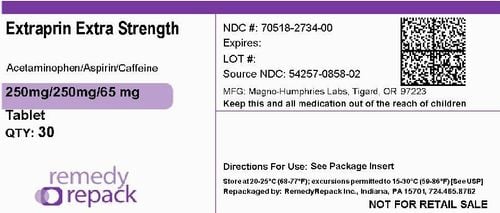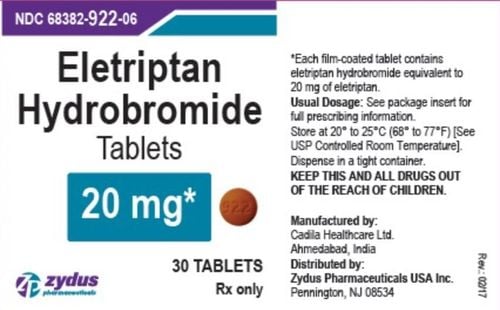This is an automatically translated article.
Valproic Acid Syrup is used to treat seizure disorders, the manic phase of bipolar disorder, and to prevent migraines. If you are pregnant, do not take valproic acid to treat bipolar disorder or migraine. This is because valproic acid can seriously harm an unborn baby.1. Uses of the drug Valproic
Valproic acid is used to treat bipolar disorder, is sometimes used to prevent migraines, and can also be used to treat epilepsy.There are no adequate studies on how this medicine works to treat bipolar disorder. However, valproic acid is thought to be able to reduce or prevent manic episodes by increasing the amount of a chemical called gamma-aminobutyric acid (GABA) in the brain. GABA blocks transmission through nerves in the brain and has a calming effect.
2. How to take Valproic
Take Valproic Acid Syrup by mouth as directed by your doctor. The drug is usually started at a low dose. Your dose will be gradually increased over several days or weeks.If this medicine is used to treat seizures, do not stop taking it without consulting your doctor. Your condition may get worse if the medicine is suddenly stopped.
3. Valproic side effects
Some common side effects include diarrhea, dizziness, drowsiness, hair loss, blurred/double vision, menstrual cycle changes, ringing in the ears, tremors, weight changes.A small number of people taking the drug may experience depression, suicidal thoughts or intentions, or other mental or mood problems. Tell your doctor right away if you or your family/carers notice any unusual or sudden changes in your mood, thoughts or behavior including signs of depression. , suicidal thoughts, thoughts about harming yourself.
Some ways to reduce the side effects of Valproic:
Stomach pain, nausea or vomiting: you should take valproic acid with or after a meal or snack. Diarrhea: take small but frequent sips of water. Talk to your doctor if you have signs of dehydration, such as urinating less than usual or dark, strong-smelling urine. Dry or sore mouth, or swollen gums - if your mouth is dry, try sugar-free gum or sweets, or sip on cold drinks. If this doesn't help or you have mouth sores, talk to your pharmacist or doctor. Tremor in a body part or unusual eye movements: talk to your doctor if this bothers you. These symptoms could be a sign that you are taking too high a dose. Your doctor may ask you to change your dose or take the medicine at a different time of day. Headache: take time to rest and drink plenty of water. Don't drink too much alcohol.

Chóng mặt là một trong số các tác dụng phụ thường gặp của thuốc Valproic
4. Be careful when using Valproic
Before taking valproic acid, tell your doctor or pharmacist if you are allergic to it; or divalproex or valproate sodium; or if you have any other allergies. This product may contain excipients (such as peanut oil), which may cause allergic reactions or other problems.Before using this medication, tell your doctor or pharmacist your medical history, especially of: liver disease, pancreatitis, metabolic disorders (urea cycle disorders, Alpers-Huttenlocher syndrome), alcohol abuse, bleeding disorders, brain disease (dementia), kidney disease, body dehydration, poor nutrition.
Rarely, this medicine causes serious (sometimes fatal) liver problems, usually within the first 6 months of starting treatment. Laboratory tests should be performed before you start treatment and periodically during treatment, especially within the first 6 months, to monitor this side effect.
The risk of serious liver problems is increased in children under 2 years of age, especially if they have an inherited metabolic disorder, severe seizure disorder with mental retardation, organic encephalopathy , or if they take more than one seizure medicine . Talk to your doctor about the risks and benefits of using this medicine in children younger than 2 years old.
This medicine rarely causes serious (sometimes fatal) disease of the pancreas (pancreatitis). This can happen at any time during treatment and can quickly get worse. Tell your doctor right away if you develop symptoms of liver problems or pancreatitis such as unusual tiredness, weakness, facial swelling, stomach/abdominal pain, loss of appetite, dark urine , yellowing of the eyes/skin or persistent nausea/vomiting.
Valproic acid is generally not recommended during pregnancy because it can harm your unborn baby.
Medications can lower your child's IQ and may increase your child's risk of certain brain or mental disorders (such as autism, attention deficit hyperactivity disorder). If you are planning to become pregnant, become pregnant or think you may be pregnant, talk to your doctor right away. If you are taking valproic acid only to prevent migraines, do not use it during pregnancy. If you are taking valproic acid for epilepsy and you become pregnant, do not stop taking it without first talking to your doctor. Your doctor may continue to prescribe valproic acid, but only if there are no other appropriate treatments for your epilepsy.
Small amounts of medicine can pass into breast milk but your doctor may still prescribe valproic acid if that is the only medicine that is right for you.

Nếu bạn đang mang thai, không dùng Valproic Acid Syrup để điều trị
5. Drug interactions
There are a number of drugs that can affect the way valproic acid works and vice versa.Tell your doctor if you are taking (or before you start taking): any other medicines for epilepsy such as carbamazepine, blood thinners such as warfarin, aspirin for pain or low-dose aspirin, cimetidine, HIV and AIDS medicine such as ritonavir, antibiotics such as erythromycin, medicine for depression or other mental health problems such as venlafaxine, quetiapine or diazepam, cholesterol medicine such as cholestyramine, medicine to prevent malaria such as mefloquine or chloroquine.
Please dial HOTLINE for more information or register for an appointment HERE. Download MyVinmec app to make appointments faster and to manage your bookings easily.
Reference source: webmd.com












